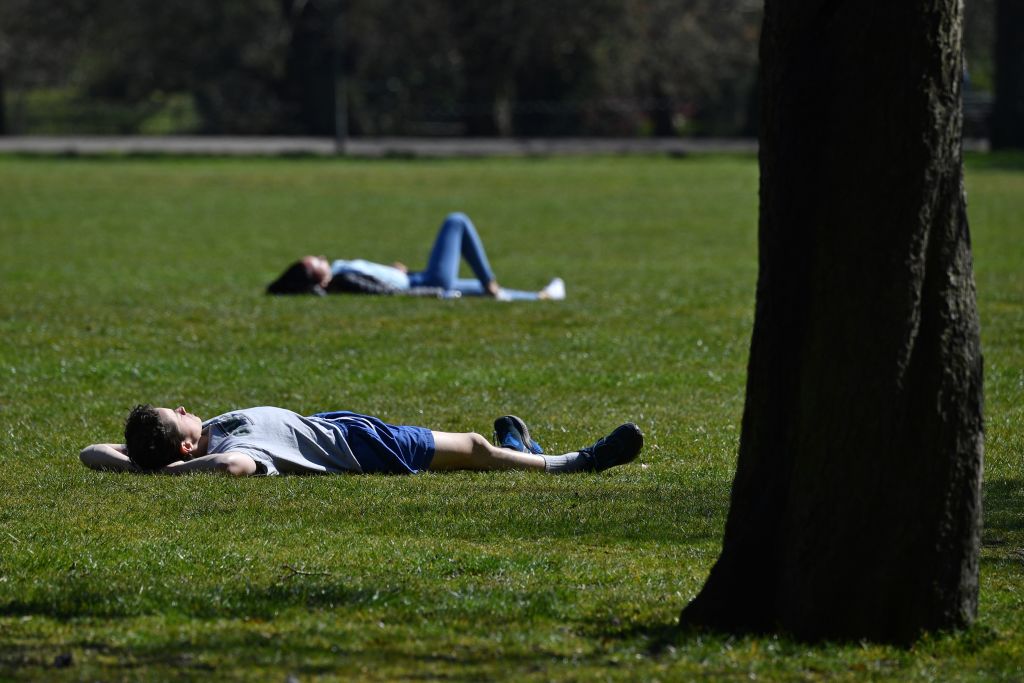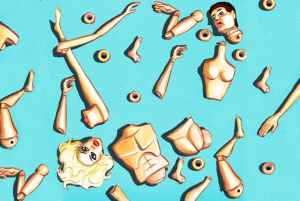According to psychologists, denial is a common defense mechanism. We humans reject truths which we find too uncomfortable to bear. When reality becomes too painful, we refuse to acknowledge it. The more evidence mounts against us, the more we insist that everything is ok.
I fear I might be doing precisely that in reaction to the coronavirus pandemic. Every day I watch the global death toll ticking up — that awful exponential growth we keep being told about. I see the images from the hospitals. I read the tweets of National Health Service frontline staff saying how desperate things are, or the Facebook posts of people mourning the dead. And I think: it can’t be that bad. Isn’t this all hysteria? Aren’t people always dying in hospitals? Aren’t we destroying the whole global economy, perhaps our civilization, on the advice of a few catastrophist scientists? Isn’t the weather lovely?
So help me God, I’m a COVID-truther. I suspect you might be one, too. We aren’t alone. COVID-truthers are everywhere.
Our enemies, the alarmists, say we are cranks and conspiracy theorists. We prefer to think we’re skeptical rationalists in a world gone mad. Truthers just want the truth, we tell ourselves. We doubt the terrifying deadliness of COVID-19, and we’re deeply resentful that, amid the lockdown insanity, we aren’t allowed to say what we think without people telling us that we are ‘literally killing people.’
So, like atheists in a theocracy, or recusants in Elizabethan England, we go underground. We are a secret society — brave rebels against the epidemiocracy. We send each other messages of support, with links to helpful articles about the lethality of the flu. We sneer at all the pro-NHS ‘virtue signaling’ on social media, thus internally signaling our own virtue. We aren’t the ones getting carried away. We furtively WhatsApp each other videos of Peter Hitchens, the grand archbishop of COVID19-trutherism, like teenagers sharing pornography. We post quotes from great men of history: ‘the truth is incontrovertible. Malice may attack it, ignorance may deride it, but in the end, there it is.’ That’s Churchill, that is. He’d be on our side.
We hunt down skeptical research like lions chasing antelope. The Oxford Centre for Evidence Based Medicine is now compulsory reading. We relish science that confirms our biases and scoff at the stuff that doesn’t. We hate, with passion, that Neil Ferguson, the self-righteous so-and-so from Imperial College whose scare-mongering study caused governments across the world to embrace lockdown strategies. The bastard.
Quite often we don’t understand, or bother to read, the complicated statistical analyses we share. We know that the other side — the alarmists — is equally ignorant, so no shame there. We add caveats: all I’m saying is; this is not to say; don’t get me wrong…then come the buts. But the authorities are muddling people dying with COVID and people dying of COVID. But the testing is inadequate and the tests are faulty. But the spread must be far wider than we realize, hence the real lethality rate is much lower. But the Italians have a much older population. But Swedish public health officials are refusing to panic. But but but…
The truther road can be tough, sometimes. We have doubts about doubts. Maybe our denialism is killing people, perhaps even literally. Last week, a truther friend came clean. He’d switched sides. He had spoken to somebody who’d nearly died of the virus, and now believed that the pandemic could be the greatest threat mankind has faced. Fair enough, I said. It’s been nice knowing you, I thought.
Some truthers, the hardcore, like to hint darkly at the real reason for global shutdown: it’s to do with the probable re-election of Donald Trump; or Brexit. It’s guerrilla warfare from the climate-change nutters. It’s connected to the trade war with China. It’s something to do with World Health Organization funding. It’s Beijing’s bid for supremacy. It’s…look, all I’m saying is, something’s not right.
The majority of COVID-19 truthers prefer to sublimate our rage and channel it into other arguments. We make furious noises about the loss of civil liberties and the pivot to authoritarianism. We are indignant about the economic destruction being wrought. Now that is an apocalypse in the making. We talk about the human cost of another Great Depression. How dare they call us callous?
We prefer these arguments because they take us back to that time, way back in February, when we knew what was right. Freedom is important. Prosperity matters. We hold these truths to be self-evident. We also yearn to go back to bickering about populism and whether or not a man can be a woman.
The bigger (perhaps biggest) problem is that nobody has any idea what is true. Cardinal Joseph Ratzinger, just before Pope Benedict XVI talked about the ‘dictatorship of relativism.’ What he meant is that, without any grounding in Christian concepts of natural law, humans have a tendency to believe in anything so long as it satisfies their sense of self. This leaves us living under a tyranny which, as Ratzinger put it, ‘recognizes nothing as absolute and which only leaves the “I” and its whims as the ultimate measure.’
That’s what is happening with the COVID-19 panic. Nobody really understands the scale of the problem. Almost everybody, truthers and alarmists, are grasping at nothing. We can’t admit the most frightening truth of all, which is that none of us knows anything at all.


















